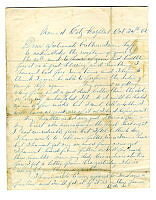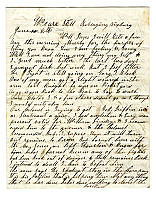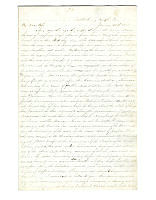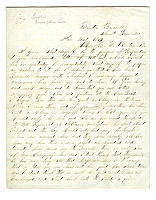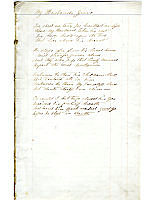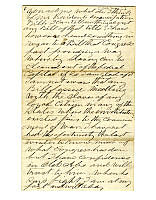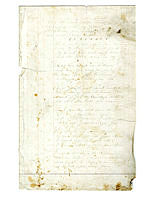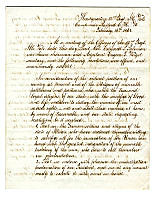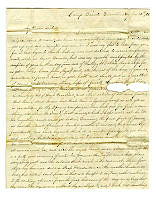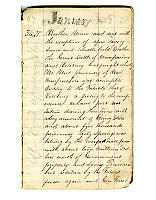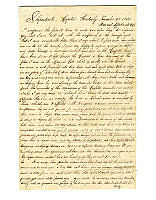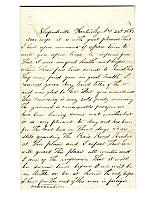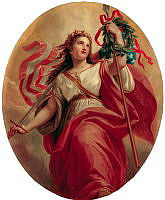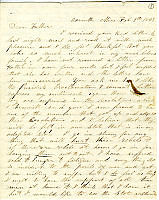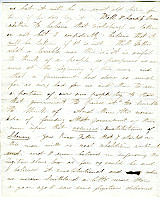Jane M. Kennedy, "My Husband's Grave," poem, William J. Kennedy Papers
This poem by Jane M. Kennedy of LaSalle, Illinois was written some time after learning of her husband's death at Memphis, Tennessee, in June 1863. William J. Kennedy was in the U.S. Army, a member of the 55th Illinois Infantry Regiment. In the poem Mrs. Kennedy laments that he died alone and was buried as an unknown soldier. (For more from the William J. Kennedy Papers please see 1118461 and 1118460. Transcription provided by the Abraham Lincoln Presidential Library & Museum and the White House Historical Association.)


